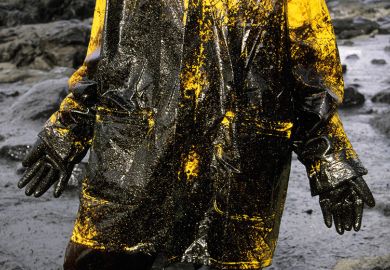The UK’s largest higher education pension fund has committed to developing a net zero investment strategy.
The Universities Superannuation Scheme said that it was developing a plan to ensure it was net zero for carbon “by 2050, if not before”.
The move reinforced USS’ “view of climate change as a financial risk to the returns generated by its assets”, the announcement said.
Last year the scheme announced that it would “exclude, and where necessary, divest” from the thermal coal mining sector. However, it was criticised at the time for not going far enough, as it continued to directly invest in oil and gas companies and fuel-intensive infrastructure investments.
The USS, which has about 400,000 active and retired members, is worth almost £80 billion.
The latest announcement said that that USS “will now develop a comprehensive strategy in order to deliver on this net zero ambition while remaining mindful of its fiduciary duties”.
It will do this by reviewing the processes used to guide where to invest and from which to divest, although would not rely on the scheme buying carbon offsets, the statement said.
Divesting from high carbon sectors will be done “over time”, USS said.
As part of the process of “establishing short-, medium- and long-term targets”, USS will build on its £1 billion portfolio of low carbon investments, such as wind and solar energy, and work with asset owners and managers on how they can transition towards carbon neutrality.
In response to the announcement, Divest USS, a campaign group of USS members urging the fund to end its investment in the fossil fuel industry, tweeted: “Now we need USS to set clear interim (2030) targets consistent with IPCC report of 45-50 per cent emissions reduction. Engage with companies cutting emissions, divest from those that aren’t”.
Bill Galvin, chief executive of USS, said that “as a trustee we must act in the best financial interests of our members and the scheme and that requires us to consider all material risks to investment performance”.
It was “quite clear” that climate change has become “more important than ever in how we consider investment returns”, he said.
Simon Pilcher, chief executive of USS Investment Management, said he recognised “that this transition will not be easy, but rather than the scheme buying carbon offsets, we have work to do to establish meaningful short-, medium- and long-term targets and milestones on our journey to net zero”.
Register to continue
Why register?
- Registration is free and only takes a moment
- Once registered, you can read 3 articles a month
- Sign up for our newsletter
Subscribe
Or subscribe for unlimited access to:
- Unlimited access to news, views, insights & reviews
- Digital editions
- Digital access to THE’s university and college rankings analysis
Already registered or a current subscriber? Login








